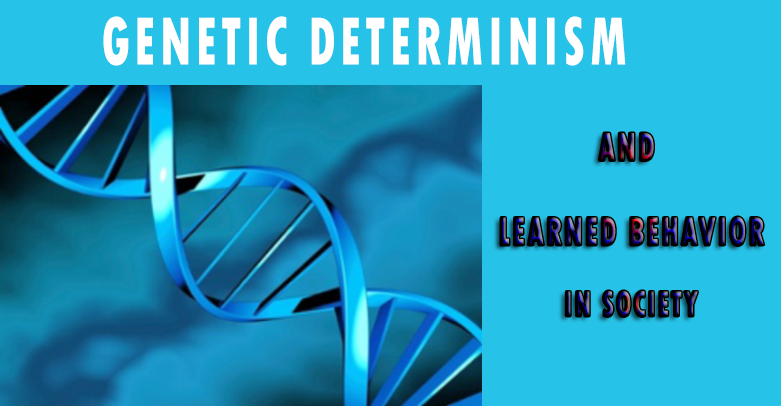Genetic Determinism is prominent in our life. It is about free will. It has a strong relation with psychology. Take an example, we make decisions based on previous circumstances, and we are compelled to choose. We are unable to make genuinely free choices. The free will results from reasoning, and there is no role of external emotions or compulsions. Genes play an integral part in performing a function.
Genetic determinism begins with genotype, i.e., genes determine the organs’ development. Different genes are responsible for unusual behavior, for instance, a gene for intelligence, a gene for tallness and a gene for homosexuality.
Gene gets information from genetic code, and this code, in turn, provides the idea of the development of an organ. There are many phenotype traits present on genes that determine a particular pattern in a family, for example, size of lips, or size of the nose, etc. Human genome gets information from DNA that is a code of life.
Genes are responsible for intelligence. If a person is intelligent by birth, it is parental genes which are responsible for that attribute. A kid can use inherited knowledge to get better grades, but learned behavior sometimes outperforms than genes. The environment significantly expresses most of the genes. There is a complex interdependence of environment and genes.
Learned Behavior
Learned behavior is what we get from the surroundings. It has many examples. The innate response is what we inherited and correctly performed by a person when he faces any critical situation.
The best pattern of the learned behavior is imprinting and habituation. Usually, human behavior is all about learning. An individual observes a situation, reflect his perception and learn from the experience.
It is possible that previously learned behavior can go unlearn and new behavior replace them.

Imprinting serves the best example of learned behavior. Learned behavior and genetic determinism are different. In psychology, there are some points when learned behavior and biological determinism are present in the same proportions. For instance, if you test a child’s performance, you can say that 20% variation is due to environmental factor while 80% is due to genetic influence.
Learned behavior is superior because a radical change in the environment makes a modest impact on the routine. Many evolutionary theories support this fact but sometimes, learned behavior performs better than genetic.
Culture is responsible for transforming human evolution. People acquire different beliefs from the external environment.
Genes and culture
A child born in Buddhist will learn the same practices as his ancestors will teach. Genes and culture link together. Though evolutionary genetics suggests that genes transform a person’s behavior, but due to learned behavior, modification in genetics is possible. Social behavior produces learning approaches, and a programmed behavior appears.
Human behavior is a product of innate modules that are present in one’s brain. The role of environment activates these modules, and a pre-programmed behavior comes into contact. Evolutionary psychology focused on the importance of genetic determinism but with the passage of time learned behavior is performing better than genetics.
Now, violation of social contracts leads to punishment and this behavior is determined by others who act by the social norms. Through the influence of culture and learning, genetic contribution is transforming its ways.
Strong genetic determinism is depleting. Now, vast traits are easy to know by learned behavior and they moderately determined by genetics. It is clear that learned behavior is superior then genetic determinism.
